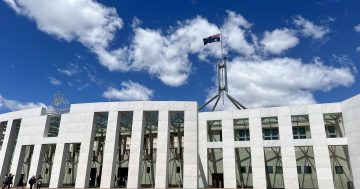
Prime minister Tony Abbott’s decision to sack three departmental secretaries within hours of his swearing-in earlier this week has not attracted the same shock John Howard’s decision to sack six secretaries caused in 1996.
At that time, Paul Keating’s removal of secretaries’ tenure in 1994 was yet to be exercised. However, 17 years later, secretaries are painfully aware that tenure has gone and, while dismissals are not common, failure to re-appoint is certainly a frequent occurrence.
Perhaps Abbott’s move was not a “night of the long knives”, then, but sadly it was a failure to respond positively to Kevin Rudd’s attempt in 2007 to restore the concept of a public service with a significant degree of independence from political pressures. It has also (again, sadly) clarified that the Public Service Amendment Act (2013) does not provide any serious constraint on prime ministerial discretion over secretary appointments and terminations, despite the rhetoric of the Second Reading Speech and the unanimous support in parliament for the legislation.
Rudd’s decision to retain all the secretaries he inherited – including several with histories of close association with the conservative side of politics or records that gave reason for Labor to query their non-partisanship – gave hope to the Australian Public Service (APS) leadership that a corner had been turned which future governments of either persuasion would follow. That is, that new governments would not act unexpectedly on suspicion of partisanship or lack of professional integrity, but would allow a period to test the loyalty and competence of the secretaries they inherit.
Rudd followed up his approach by other measures pressed by Senator John Faulkner to strengthen the professional non-partisanship of the APS. These included: involving the Public Service Commissioner in appointments and terminations, removing performance pay, setting five years as the standard contract period (rather than the increasing use of three year contracts) and the introduction of a code of conduct for ministerial staff.
Several of these are now reflected in the Public Service Act after amendments agreed unanimously earlier this year. The amended act also now requires appointments and terminations by the governor-general, a presentational change but one I and others had hoped conveyed an important principle about the status of the APS as an institution.
It is true nonetheless that Rudd and Julia Gillard and their ministers did not always demonstrate Faulkner’s appreciation of the proper role of the public service. The manner in which Rudd and Wayne Swan used Treasury to shield their own accountability for economic and budgetary policy was hardly consistent with the distinctions between politics and administration, or with the lines of accountability that Faulkner had been trying to clarify.
This was also true in other policy areas, including immigration and climate change, exposing and using public service advice – selectively of course – for political ends. Perhaps some officials allowed themselves to be used too much, but most fault surely lies with ministers and the then-government. To the extent that fault lies with officials, I personally had hoped Abbott would show the same magnanimity Rudd demonstrated in 2007 and allow the relevant secretaries to prove (or otherwise) their ability to serve his government before acting to terminate appointments.
Most commentators have not been critical of the decision to terminate the contract of industry department head Don Russell. Certainly, he demonstrated partisanship when on prime minister Keating’s staff and Abbott has good reason to be uncertain of his capacity to serve the conservative government loyally. But Rudd might equally have had doubts about some secretaries he inherited, such as Michael l’Estrange, who had played a prominent role on John Howard’s staff as Cabinet secretary.
In my view, l’Estrange was a highly competent and professional secretary who never – in that role – showed partisanship, serving Rudd and Gillard well. Could Russell have done so for Abbott? My guess is that he could have had he wished to stay on, given his long APS experience and his sharp intelligence.
The other two (agriculture department head Andrew Metcalfe and Resources, Energy and Tourism’s Blair Comley) should definitely have been kept on. Both are proven career public servants who were asked to take on jobs in amongst the most politically sensitive fields imaginable.
Perhaps they allowed themselves to be used to promote the then-government’s policies. But arguably that was true of some secretaries Rudd inherited, such as Peter Boxall and Jane Halton. Halton, for example, attracted concern on the Labor side because of the manner of her defence of the Children Overboard case.
The issue is whether these apparent, excessively responsive behaviours justify dismissals by a new government despite the overall competence of the individuals concerned. In Metcalfe’s case, the new government had first-hand knowledge, after he criticised their asylum seeker policies while in his former role as head of the immigration department in 2011.
The case of treasury secretary Martin Parkinson is not yet clear after it was announced that he would leave his post midway through next year. I do not know the extent to which he is being pushed out rather than willingly contemplating another role, but if he too is being pressured to go without Abbott having yet tested his competence and loyalty, that is most unfortunate.
The one good element of the Abbott announcement was the appointment of two career public servants to fill the vacancies. That at least does show some respect for the APS.
What messages is Abbott giving secretaries and the APS? It is just possible there is one positive message: to be very careful about the fine line between explaining and marketing government policies. As the late Canadian academic Peter Aucoin opined, we have seen too much “promiscuous non-partisanship” in recent years: public servants willing to serve whichever side of politics is in power, but to do so with excessive responsiveness giving the public reason to doubt the impartial professionalism of their advice and administration.
In my view, this was becoming a major problem under the Howard government, and did not diminish appreciably under the Rudd and Gillard governments.
My fear, however, is that that is not the main message intended, nor the main one received. More likely is the message that public servants must indeed be even more careful in their advice – whether in public or private – and not do anything that might provoke retribution. They should also be wary of taking on politically sensitive tasks.
If the message was for a genuine return to professionalism, impartiality and non-partisanship, then that would have best been imparted by retaining the secretaries Abbott inherited and advising them all clearly what the Government expects in terms of loyalty. The APS leadership – particularly the APS Commissioner and the Secretary of Prime Minister and Cabinet (both of whom are thankfully strong traditionalists) – would then have responsibility to clarify that this does not permit “promiscuous non-partisanship” and that it does require “frank and fearless” advice.
Given the decisions taken, however, the APS Commissioner and PM&C secretary just have to do their best to encourage the APS not to be even more risk averse and to meet their responsibilities for frank and fearless advice.
Andrew Podger was Public Service Commissioner from 2002-2004 and has held other senior positions in the public service.
This article was originally published at The Conversation.
Read the original article.


















